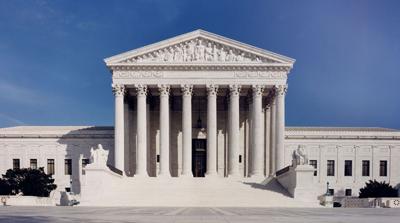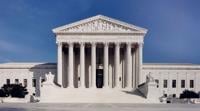
AUSTIN — The U.S. Supreme Court on Friday upheld a Texas law requiring pornography companies to institute age-verification measures to safeguard children from obscene online material.
In 2023, Texas enacted House Bill 1181, requiring commercial websites publishing sexually explicit content to verify that visitors are 18 or older.
Pornography distributors responded by suing Texas, alleging the law was unconstitutional under the First Amendment’s Free Speech Clause. A court ruling, however, allowed Texas to enforce the statute while the litigation continued.
The Supreme Court found Texas’ age verification requirement does not violate the First Amendment, permitting the law to remain in effect.
The majority of justices held that H.B. 1181 “simply requires” adults to verify their age before they can access speech that is “obscene to children.”
“It is therefore subject only to intermediate scrutiny, which it readily survives,” the opinion states. “The statute advances the State’s important interest in shielding children from sexually explicit content. And, it is appropriately tailored because it permits users to verify their ages through the established methods of providing government-issued identification and sharing transactional data.”
Attorney General Ken Paxton called the high court’s ruling a major victory.
“This is a major victory for children, parents, and the ability of states to protect minors from the damaging effects of online pornography,” Paxton said. “Companies have no right to expose children to pornography and must institute reasonable age verification measures. I will continue to enforce the law against any organization that refuses to take the necessary steps to protect minors from explicit materials.”
Paxton has already been aggressively enforcing the law, suing Aylo Global Entertainment, the operator of pornography websites including Pornhub. Instead of instituting the required age verification, Pornhub opted to shut down its site entirely in Texas.
H.B. 1181 is not the only law of its kind, as at least 21 other states have imposed similar age-verification requirements.
“Age-verification laws like H. B. 1181 fall within States’ authority to shield children from sexually explicit content,” the opinion states. “The First Amendment leaves undisturbed States’ traditional power to prevent minors from accessing speech that is obscene from their perspective.”
Justice Elena Kagan dissented, opining that while many reasonable people view sexually explicit speech as ugly and harmful for any audience, the First Amendment protects those sexually explicit materials for every adult.
“So a State cannot target that expression, as Texas has here, any more than is necessary to prevent it from reaching children,” the opinion states. “That is what we have held in cases indistinguishable from this one. And that is what foundational First Amendment principles demand. Because the majority departs from that right and settled law, I respectfully dissent.”
H.B. 1181 was challenged by the Free Speech Coalition, an adult-entertainment industry trade group that argued the law places a free-speech burden on adults by requiring them to submit personal information online.
Companies violating the age verification requirements will be subject to fines of up to $10,000 per day, an additional $10,000 per day if the corporation illegally retains identifying information, and $250,000 if a child is exposed to pornographic content due to not properly verifying a user’s age.


